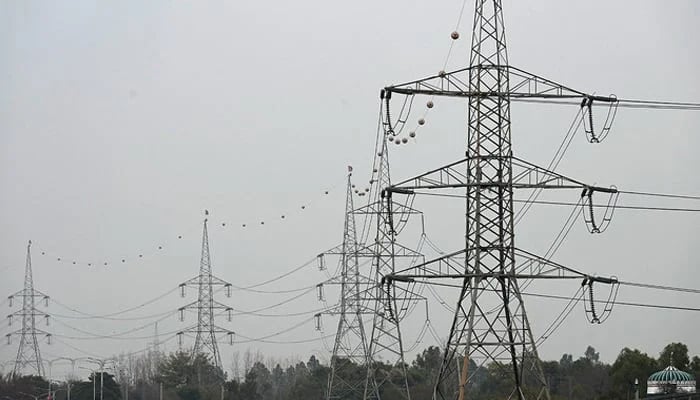Electricity crisis and the rising spectre of social unrest
Around the year 2008, the circular debt within the electricity sector stood at Rs100 billion
Here’s a partial list of countries where electricity pricing and related issues have led to protests and demonstrations over the years: Venezuela, Chile, Brazil, Argentina, Mexico, South Africa, Nigeria, Sudan, Egypt, India, Bangladesh, Nepal, Ukraine, Russia, Greece, Spain, France, Italy, Turkey, Iran, Iraq, Jordan, Lebanon, Yemen, Zimbabwe, Kenya, Ethiopia, Indonesia, Philippines, Thailand, Cambodia, Haiti, Colombia, Peru, Bolivia, Ecuador, Guatemala, Honduras and Paraguay.
In Pakistan, the heat of inflation has been progressively growing. Within the last year, the price of our essential commodity, wheat, has soared by a significant 130%. Simultaneously, there has been an increase of 108% in gas bills, and prices of tea, rice, and sugar have individually escalated by 90% and 80% respectively. Considering this backdrop, the electricity bill for July can be likened to the symbolic icing on the cake.
Your electricity bill isn’t truly an ‘electricity bill,’ given that only 20% of the total pertains to actual electricity consumption, while taxes make up 30%, and a substantial 50% is attributed to ‘government inefficiencies.’
Around the year 2008, the circular debt within the electricity sector stood at Rs100 billion. Now, looking ahead to 2023, this number has surged to an astonishing Rs2,400 billion. This steep escalation highlights the shared accountability of every political government that has been in control from 2008 to 2023 for the intricate crisis that engulfs us in the present moment.
The protests in countries like Venezuela, Chile, and Brazil highlight how even resource-rich nations can stumble when it comes to managing their energy sectors. Mismanagement and corruption can lead to unreliable supply, exorbitant prices, and the subsequent outrage of citizens who find themselves grappling with blackouts and financial burdens. Similarly, in countries such as Sudan, Nigeria, and Egypt, electricity woes intersect with broader dissatisfaction about the quality of governance, sparking mass demonstrations fueled by a sense of economic injustice.
The case of Pakistan could mirror the global trend. The backdrop of escalating inflation paints a grim picture for the average Pakistani’s purchasing power. The steep rise in the prices of essentials like petrol, diesel, wheat, gas, tea, rice, and sugar has severely strained household budgets, creating a palpable atmosphere of economic anxiety. In such a milieu, the surge in the July electricity bill becomes a poignant symbol of the mounting financial pressures faced by an average Pakistani.
The global landscape of electricity-related protests underscores the potent mix of economic pressures and governance shortcomings. The case of Pakistan is a microcosm of these global dynamics, where rising inflation and soaring utility bills are testing the patience of the populace. Beyond the numbers, the electricity bill symbolizes the intersection of economic strains and citizen demands for fairness and accountability. Ultimately, addressing the electricity crisis and preventing social unrest requires holistic measures that span from energy sector reforms to broader governance improvements. Only through such comprehensive efforts can Pakistan hope to keep the lights on both literally and metaphorically in the lives of her citizens. Can the electricity bill become the straw that breaks the camel’s back?
-
 'Too Hard To Be Without’: Woman Testifies Against Instagram And YouTube
'Too Hard To Be Without’: Woman Testifies Against Instagram And YouTube -
 Kendall Jenner Recalls Being ‘too Stressed’: 'I Want To Focus On Myself'
Kendall Jenner Recalls Being ‘too Stressed’: 'I Want To Focus On Myself' -
 Dolly Parton Achieves Major Milestone For Children's Health Advocacy
Dolly Parton Achieves Major Milestone For Children's Health Advocacy -
 Oilers Vs Kings: Darcy Kuemper Pulled After Allowing Four Goals In Second Period
Oilers Vs Kings: Darcy Kuemper Pulled After Allowing Four Goals In Second Period -
 Calgary Weather Warning As 30cm Snow And 130 Km/h Winds Expected
Calgary Weather Warning As 30cm Snow And 130 Km/h Winds Expected -
 Maura Higgins Reveals Why She Wears Wigs On 'The Traitors' And What Her Real Hair Is Like
Maura Higgins Reveals Why She Wears Wigs On 'The Traitors' And What Her Real Hair Is Like -
 Brandi Glanville Reveals Shocking Link Of Facial Issues To Leaking Implants, Claims 'no' Support From Ex Eddie Cibrian
Brandi Glanville Reveals Shocking Link Of Facial Issues To Leaking Implants, Claims 'no' Support From Ex Eddie Cibrian -
 Who Is Rob Rausch’s Girlfriend? 'The Traitors' Winner Linked To Kansas City Woman
Who Is Rob Rausch’s Girlfriend? 'The Traitors' Winner Linked To Kansas City Woman -
 Bobby J. Brown, 'Law & Order' And 'The Wire' Actor, Dies At 62
Bobby J. Brown, 'Law & Order' And 'The Wire' Actor, Dies At 62 -
 Netflix Gives In As Paramount Offers Massive Breakup Fee To Step Away From Warner Bros. Discovery Bid
Netflix Gives In As Paramount Offers Massive Breakup Fee To Step Away From Warner Bros. Discovery Bid -
 Who Won 'Traitors' Season 4? Rob Rausch Claims $220,800 Grand Prize
Who Won 'Traitors' Season 4? Rob Rausch Claims $220,800 Grand Prize -
 Niall Horan Shares Update On New Music On The Way
Niall Horan Shares Update On New Music On The Way -
 Backstreet Boys Member Brian Littrell Refiles Trespassing Lawsuit Against Florida Retiree
Backstreet Boys Member Brian Littrell Refiles Trespassing Lawsuit Against Florida Retiree -
 Kate Middleton Dubbed ‘conscious Shopper’ By Famous Fashion Expert
Kate Middleton Dubbed ‘conscious Shopper’ By Famous Fashion Expert -
 Princess Catherine Joins Volunteers In Newtown During Powys Visit
Princess Catherine Joins Volunteers In Newtown During Powys Visit -
 Shamed Andrew Thought BBC Interview Was ‘time To Shine,’ Says Staff
Shamed Andrew Thought BBC Interview Was ‘time To Shine,’ Says Staff




